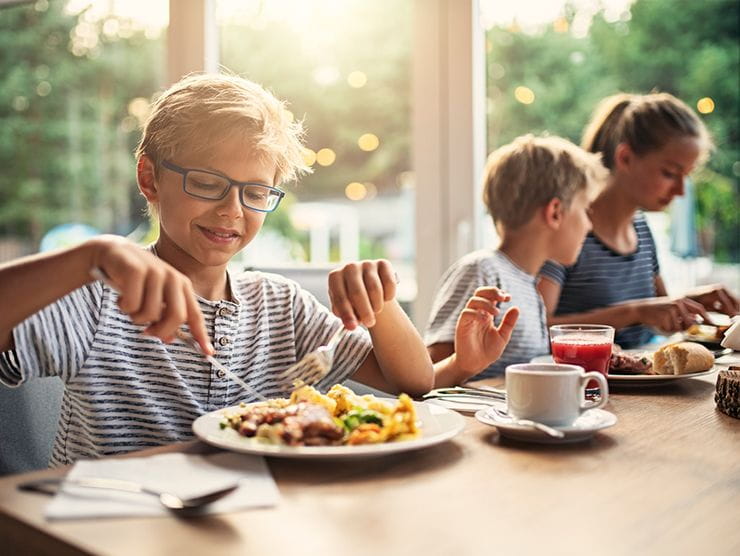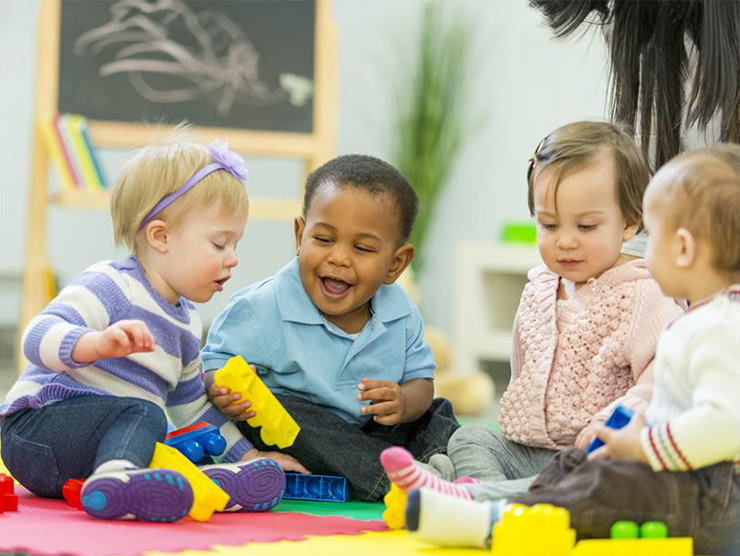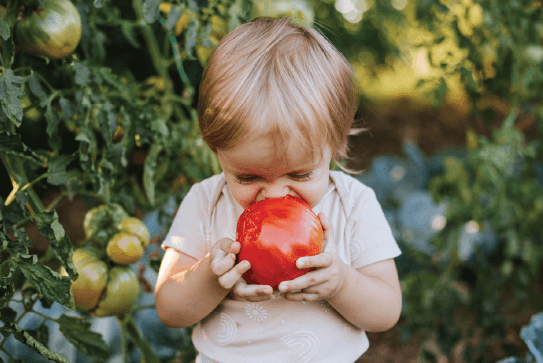What does it mean to be a good citizen?
At Bright Horizons, we believe that education is more than teaching a child content such as letters, numbers, and facts. Early childhood education is about helping children become their best selves; individuals with a large capacity for kindness, empathy, and character- the fundamental qualities needed on the pathway to becoming a good citizen. Our Toward a Better World curriculum focuses on:
- Civic and community responsibility
- Character development
- Diversity, equity, and inclusion
- Environmental stewardship
Together, teachers and children create a classroom community where children are involved in a range of experiences that promote children’s development of identity, valuing diversity, and appreciating and caring for the world around them. They learn about their impact on others, their immediate classroom community and the larger world in which they live.
How to teach kids good citizenship
A child’s family plays a key role in supporting the development of good citizenship for kids. Start first within your home, within the context of secure, responsive and nurturing relationships, and as your child grows, gradually expand to your larger community.
Model compassionate behavior
Children take in a lot more of what we do than what we say. Model and encourage ethical, compassionate, empathetic and thoughtful behavior. Offer plenty of opportunities for play and social interaction, group work and discussions. Compliment your child when you see them helping someone else or caring for another. Role modeling will be key, as children under the age of 4 lack the social and cognitive skills required to execute this without assistance.
Give your child responsibility
Work on projects as a family and give your child small jobs. Keep the jobs consistent with their capabilities so they learn about the joy of helping, rather than becoming frustrated. Be sure you help your child learn the task—perhaps first doing it alongside them—until they become confident. It can be tempting here to use rewards to help motivate your child. Rewards can quickly become the driving force for motivation, rather the non-reward, intrinsic value that is at the core of being a good citizen for kids. When providing opportunities for your child to step in and help you with small tasks, try to allow your child to feel some sense of control over the task, feel connection to you and the family, and know they have the skills needed to meet the challenge.
Read books about good citizenship
As with so many topics, books are a perfect starting point to spark discussion and learning. Seek high quality literature that promotes good citizenship for kids such as conversations about honesty, making change, or doing one’s part. Look for books that positively and authentically depict people from many ethnic, racial, religious, or cultural backgrounds.
Develop a love for the natural world
At Bright Horizons, we believe that each child is born with an innate sense of wonder, curiosity and creativity. When children are provided experiences with nature, they are able to create deep sensory and emotional connections that carry them into adulthood. Help your child develop a love for the natural world, encouraging comfort and respect for what is around them. Encourage your child to use their resources widely, and model doing this yourself (i.e. recycling, not leaving the water running, etc.)
Teach simple lessons in civic engagement
Bring your child with you to vote. If age-appropriate, explain the importance of voting and why you participate. A preschooler is too young to understand the complete political landscape, but they can start to learn the significance of voting and begin to understand your value system.
Encourage problem-solving and critical thinking
Good citizenship for kids also includes learning how to solve problems and think critically. Encourage your child to ask questions and think about the consequences of their actions. Whether it's deciding how to solve a problem with a friend or understanding how their actions impact the world, critical thinking helps kids become more responsible and conscientious citizens.
You can foster this skill by discussing different scenarios where your child must make choices and consider the impact on others. For example, if your child is deciding whether to share a toy, you can help them think through the consequences of their decision and the feelings of the other child involved. By practicing these skills regularly, your child will grow into a thoughtful, responsible adult who balances both their own needs and the welfare of others in their actions and decisions.
Why good citizenship matters for kids
Understanding the importance of good citizenship from an early age helps children build a strong foundation for their role in society. Good citizenship teaches children how to care for others, contribute to their communities, and make good choices that positively impact the world. It can also affect how they handle real-world responsibilities, such as technology and finance when adulthood arrives.
By fostering responsibility and respect, we empower children to become engaged and compassionate individuals. These qualities not only benefit the child’s development but also create a ripple effect that strengthens communities. Early lessons in good citizenship promote a culture of kindness and cooperation, laying the groundwork for a brighter, more inclusive future.
Learn about the Bright Horizons approach to teaching and learning, and how we encourage children to become explorers, discoverers, and thinkers in our classrooms.





